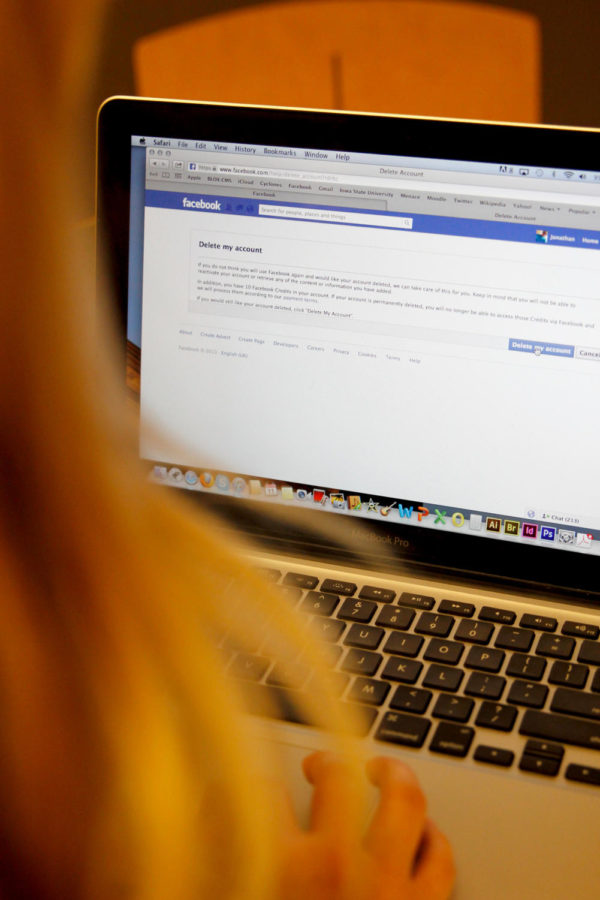Editorial: Can we really be surprised Facebook used our data?
Jonathan Krueger/Iowa State Daily
The novelty of Facebook has definitely waned and usefulness of it may have passed its prime as well. There could be less Facebook traffic if there aren’t any incentives to log on.
April 15, 2018
In the past few weeks, public and government scrutiny has rained down on Facebook. The reason? The data of almost 87 million Facebook users made its way to Cambridge Analytica, which had ties to the Trump campaign in the 2016 election, according to the New York Times. It seems, though, that the American people are being a bit naive.
We didn’t bat an eye when Facebook introduced ads that nearly read our minds about what products and services interest us. Our jaws didn’t drop when Facebook could recognize the faces of people we wanted to tag in photos without us having to type in their names. But suddenly when our data ends up in the hands of those trying to destroy our democratic process, we get concerned?
So why the concern now? The ISD Editorial Board feels the concern comes because we believed in Facebook. We believed its mission to “give people the power to build community and bring the world closer together.” But we failed to see the signs pointing to Facebook’s motivation to earn profit rather than protect its users before this controversy.
If you think about the trust we bestow in technology companies like Facebook and Google, it doesn’t really make sense. We enjoy that the platforms are free and the efficiency they provide us, but we do so at the costs of providing our data and risking our privacy.
We have to be better than that as consumers. There is a reason that the U.S. Postal Service or phone services aren’t free. There is a reason public libraries are funded by public dollars. It costs money to protect the privacy of communication and obtaining information.
We aren’t saying that platforms like Facebook and Google should be government-controlled, public entities. But we are saying that there are vastly different motives for companies than public agencies, and we have to start treating them that way.
In a previous editorial, we wrote that we needed to demand answers for the unknowns surrounding the use of our data. We have to stop automatically believing companies when they tell us they have no intentions of misusing our data. We ought to approach sharing our data with a more skeptical point of view and demand that these companies be even more transparent about what they do with our data.







